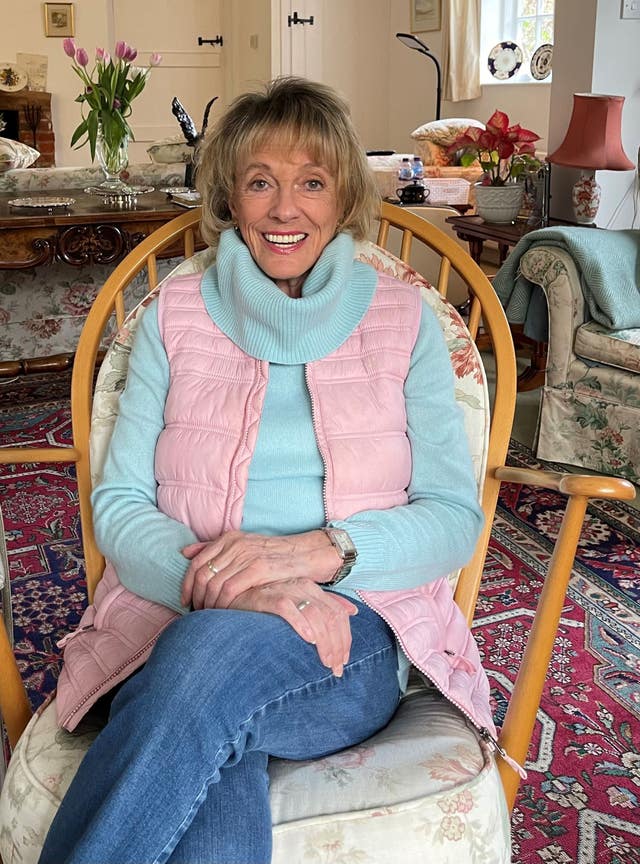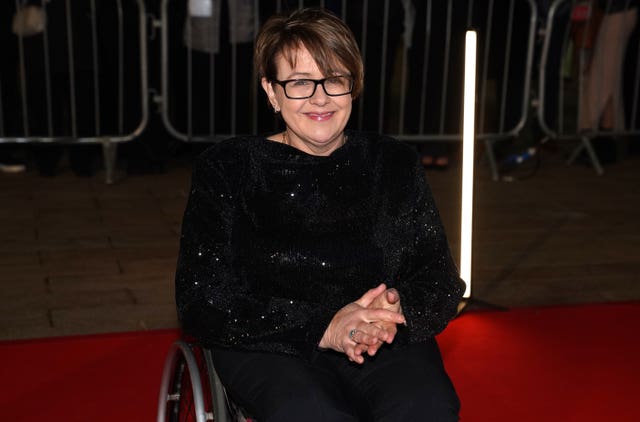An Assisted Dying Bill has officially been introduced in the House of Lords as the Health Secretary said it is “a debate whose time has come”.
The prospect of legalising assisted death has increasingly been in the spotlight in the past year, with moves being made elsewhere in the British Isles, and the revelation from cancer-stricken TV star Dame Esther Rantzen that she has joined Dignitas.
The title of former Labour justice secretary Lord Falconer of Thoroton’s private member’s bill – the Assisted Dying for Terminally Ill Adults Bill – was read out at the start of business in the House of Lords on Friday, and is expected to be debated in mid-November.
It is possible a private member’s bill on assisted dying could be chosen for debate in the Commons, when a ballot takes place in September.
Lord Falconer, who described assisted dying as “the UK’s next great social reform”, said he had asked for his Bill to have its Second Reading debate in November “so that colleagues in the House of Commons can, if they wish, hold their own debate and vote on Second Reading in advance of the House of Lords”.
Health Secretary Wes Streeting said the time for debate on the divisive issue has come, but admitted he is “uncharacteristically undecided” on the topic.
Lord Falconer’s Bill would allow terminally ill adults with six months or under left to live to end their lives, and the peer has stressed that it would have strong safeguards, including that the person has to be mentally able to make the decision, two doctors would have to approve it and it must have High Court approval.

He told BBC Radio 4’s Today programme: “My Bill is absolutely directed about how you die in the context of a terminal illness.”
He said the idea of legalising assisted dying has moved up the political and social agenda in recent decades, noting Dame Esther’s intervention.
The TV presenter has been a strong advocate among the voices campaigning for assisted dying to be legalised, as she lives with stage four cancer.
Last week, Dame Esther’s daughter Rebecca Wilcox said her mother is “living from scan to scan”.
She said the introduction of the Bill had provided “light at the end of a tunnel which has trapped me for so long”.
“What we terminally ill need is to be allowed the hope that if life becomes intolerable, we can ask for help to leave it,” she wrote, saying the existing law meant anyone accompanying her on a trip to Dignitas in Switzerland to end her life would be breaking the law.
“The law might actually change in time for me to die peacefully at home surrounded by those I love. Suddenly my heart lifted.”
Prime Minister Sir Keir Starmer has committed to allowing a free vote on assisted dying, but has declined to put a timetable on it.
An emotional debate in Westminster Hall earlier this year saw MPs from across the political spectrum give impassioned speeches for and against changing the law.
Various moves towards a change in the law have also been taking place in Scotland, on the Isle of Man and Jersey, with strong arguments from people on both sides of the argument.
Critics argue that legalisation could put pressure on vulnerable people to end their lives for fear of being a burden on others and that the disabled, elderly, sick or depressed could be especially at risk, but supporters say it would allow people to die with dignity.
Mr Streeting said he is “uncharacteristically undecided” on the issue.
He told the Today programme: “This will end up being both an ethical debate – ‘is this right in principle?’ – and it will also go to being a practical debate – ‘can this work in practice?’.
“And I think it’s contingent on us to help MPs and peers navigate those thorny issues in the most evidence-based and well-supported way as possible, recognising there’ll be sincerely and strongly held views on both sides of this debate.”
He added: “It is a debate I will wrestle with. I’m uncharacteristically undecided on this issue, but it is a debate whose time has come.”

She argued that despite the safeguards outlined, the law could still be “open to a huge amount of abuse”.
Asked about the public mood, she told Today: “When you ask people the simplistic question ‘do you support assisted suicide?’ a lot of people say ‘yes’. When you dig beneath that and people realise we’re not talking about palliative care, we’re talking about end of life, that support drops dramatically.”
Dame Sarah Mullally, who is joint lead bishop on healthcare for the Church of England and sits in the House of Lords, said the church believes the priority for terminally ill people “must be to provide urgent funding and resourcing of palliative care services” rather than a law change to allow assisted dying.
The Bishop of London, a former chief nursing officer for England, said: “No amount of safeguards could ensure the safety of the most vulnerable in society, should there be a change in the law allowing for assisted suicide.
“We believe that there would be unintended, serious and fundamental consequences for the whole of society, especially for those who are at the most vulnerable point of their lives, and for those who love and care for them.”






